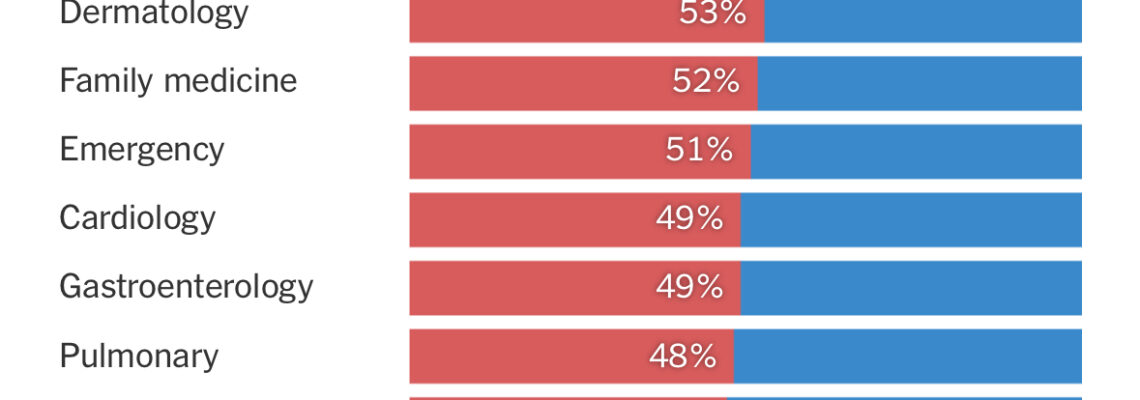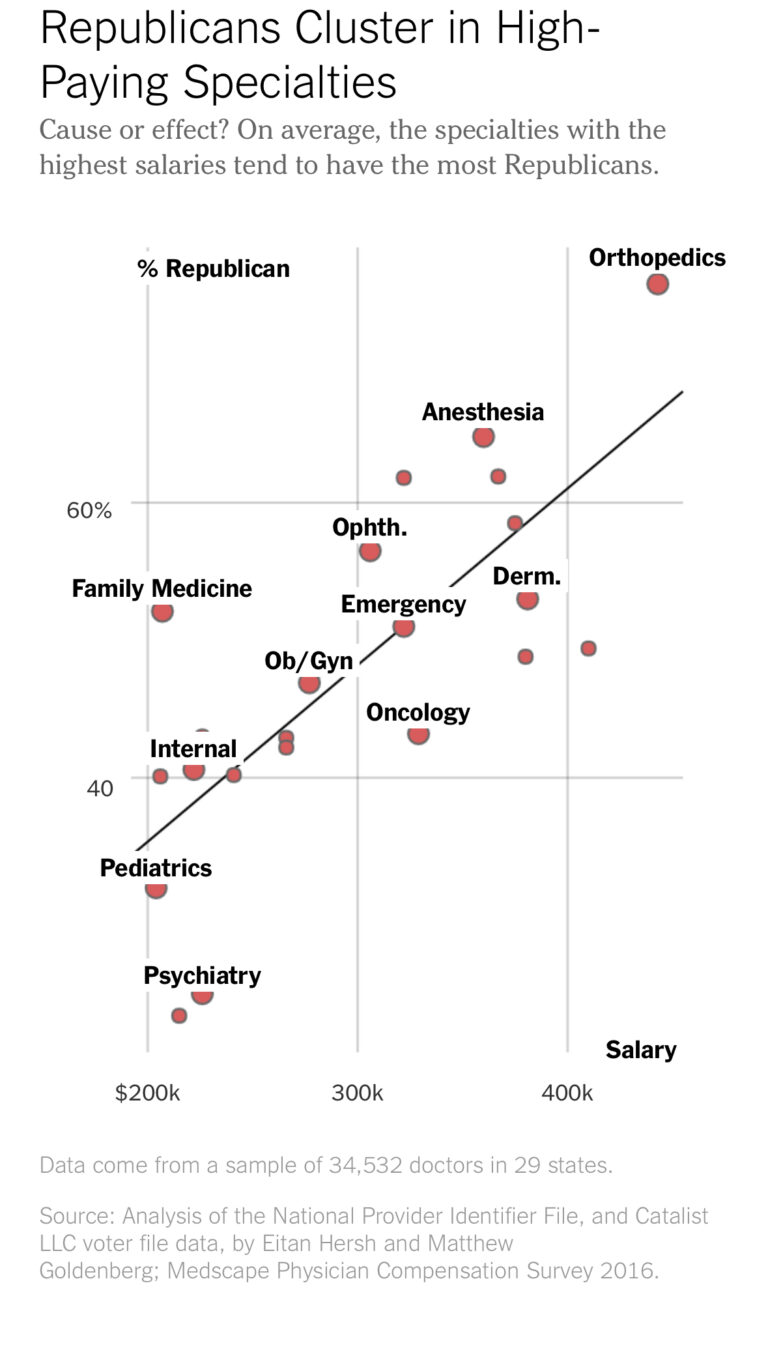
Political affiliations across different medical specialties
- October 4, 2024
- 0 Likes
- 375 Views
- 0 Comments

Expanding on last week’s APP Perspective post, I found a second article that used the data set from the same Yale study to examine political leanings within medical specialties.
The New York Times further analyzed Yale’s data set and found that, when looking at physicians registered with a political party, more than 50% of physicians identify as Democrats. More interesting was their finding that certain medical specialties demonstrate their own political trends.
The Times note that:
- Surgeons, anesthesiologists, and urologists are more likely to be Republican
- Infectious disease specialists, psychiatrists, and pediatricians are more likely to be Democrat
- Specialties with higher average salaries tended to lean more Republican while physicians in lower-paying specialties were more often Democrats (see table to the left).
Several theories emerge as to why certain specialties gravitate toward a specific political party:
- Clinical experiences within a given specialty: the article suggests that an infectious disease specialist caring for drug addicts with hepatitis C may support increased social safety nets, thus aligning themself with Democrats.
- Comfort level among colleagues while on clinical rotations in medical school: as medical students rotate through various medical specialties, they gravitate toward specialties where the workplace culture is most comfortable; in other words, there is some preliminary sorting that occurs as young physicians choose their future specialties.
- Money: higher-paid physicians may feel concerned about Democratic policies that tax wealthier individuals at a higher rate, thus causing them to lean more Republican.
- Shifting demographics among physicians: physicians who identify as women are more likely to also identify as Democrat; as female physicians now dominate in the specialties of pediatrics, obstetrics-gynecology, and psychiatry, these medical fields naturally become more Democratic.
- Shifting business ownership status of physicians: more and more physicians are now employees of larger healthcare organizations as opposed to being small-business owners who historically benefitted from lower taxes and regulations promoted by Republicans.
Why should patients care about any of this?
Overall, the original Yale study concluded that both conservative and liberal physicians offer good care to patients. However, some differences were observed in the way physicians approach politically divisive healthcare issues based on their political beliefs.
The Times concludes that “patients whose needs were closely related to politically divisive subjects, like reproductive health, with issues like contraception, abortion, and prenatal screening; or H.I.V. prevention, with risk factors that include sex and intravenous drug use” may receive different care from providers aligning with different political parties.
Nikki Rataj Casady, DMSc, PA-C
References
Sanger-Katz M. Your surgeon is probably a Republican, your psychiatrist probably a Democrat. New York Times. Published October 6, 2016. Accessed October 1, 2024. www.nytimes.com/2016/10/07/upshot/your-surgeon-is-probably-a-republican-your-psychiatrist-probably-a-democrat.html
Hersh ED, Goldenberg MN. Democratic and Republican physicians provide different care on politicized health issues. Proc Natl Acad Sci U S A. 2016;113(42):11811-11816. doi:10.1073/pnas.1606609113

